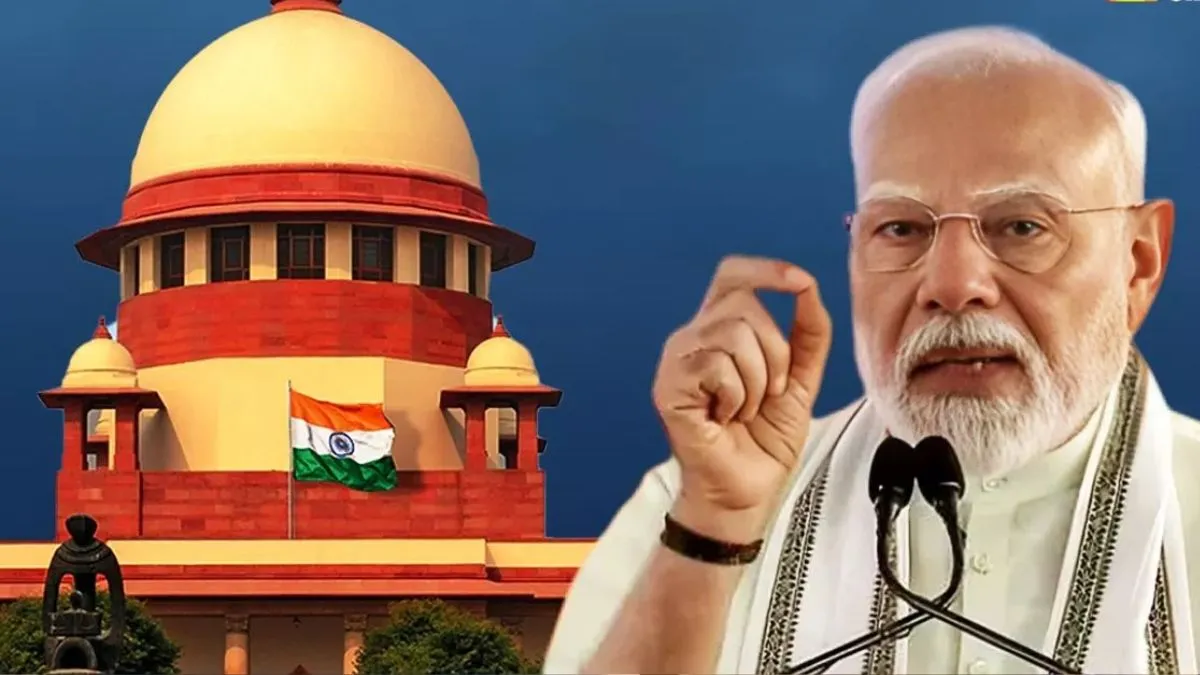- By Imran Zafar
- Fri, 04 Apr 2025 11:34 PM (IST)
- Source:JND
The Waqf (Amendment) Bill, 2025, which was passed by both Houses of Parliament despite opposition protests, has been challenged in the Supreme Court by AIMIM chief Asaduddin Owaisi and Congress MP Mohammad Jawed. The petitioners argue that the bill discriminates against the Muslim community and infringes upon fundamental rights guaranteed by the Constitution. The bill is currently awaiting the President’s assent.
This is not the first instance of the opposition challenging the Centre’s legislation in the Supreme Court. Previously, the apex court has delivered key verdicts on contentious issues such as Article 370, the Electoral Bonds Scheme, the Citizenship Amendment Act and Triple Talaq. Here’s a brief look at what the Supreme Court decided on these issues:
Article 370
On December 11, 2023, a Constitution Bench led by Chief Justice DY Chandrachud upheld the government’s 2019 decision to revoke the special status of Jammu and Kashmir. The court ruled that the region should regain statehood, with elections mandated by September 2024. The decision allowed non-residents to buy property and apply for jobs, sparking opposition concerns about potential instability.
Electoral Bonds
On February 15, 2024, the Supreme Court declared the Electoral Bonds Scheme unconstitutional and ordered an immediate halt to bond issuance. The bench ruled that amendments to the Income Tax Act, Representation of the People Act and Companies Act, which allowed anonymous corporate political donations, violated electoral transparency. The court directed the State Bank of India to disclose all details of electoral bond transactions to the Election Commission by March 6, 2024.
Citizenship Amendment Act (CAA)
In a 4:1 verdict on October 17, 2024, a five-judge Constitution Bench upheld Section 6A of the Citizenship Act, which grants citizenship to immigrants who entered Assam between January 1, 1966, and March 25, 1971. Chief Justice Chandrachud and Justice Surya Kant maintained that the provision upheld constitutional fraternity, while Justice JB Pardiwala dissented, arguing that it had become unconstitutional over time. Notably, this case is still under judicial consideration.
ALSO READ: India’s Foreign Investment Prospects Soar As Trump Slaps Higher Tariffs On Competitor Nations
Triple Talaq
The Supreme Court is currently hearing challenges to the Muslim Women (Protection of Rights on Marriage) Act, 2019, which criminalizes Triple Talaq. On January 29, 2025, the court sought data from the Centre on the number of FIRs registered and charge sheets filed under the law. Petitioners argue that criminalizing the practice unfairly targets Muslim men, while Solicitor General Tushar Mehta defended its necessity. The matter is scheduled for further hearings.
With the Waqf Bill now under judicial scrutiny, the Supreme Court’s decision will add to the growing list of judgments shaping the country.

